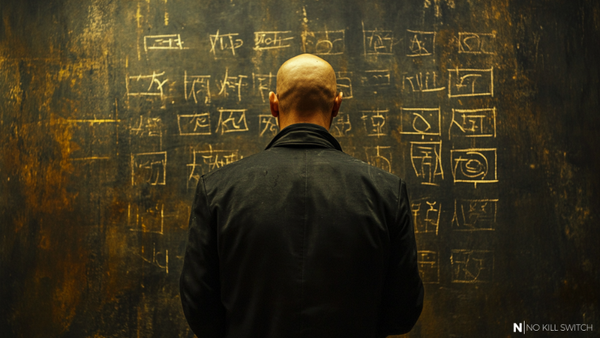This short article is all about: the end of non-fiction books (?!), how to extract (& preserve) KNOWLEDGE out of raw information, what kind of tools can be used to support this process, why it requires more effort than just understanding the written words.
Few days ago someone has linked me a very interesting article - "Why books don't work" (https://andymatuschak.org/books/). I honestly recommend reading through it (at least "the books" part - because there's a separate one on lectures), but if you're super-lazy ... it's about an observation that reading non-fiction books is very ineffective as the typical outcome (of reading such a book) is a foggy memory of a few one-liners (after getting through 200+ pages of condensed text).
Examples, clarifications, justifications, real-life cases, in-depth cause and effect sequence: all of those simply do not stick with a reader.
If you're a bookworm (like myself) & get through several books in a relatively short period of time, the messages mix & blend into relatively homogeneous mass - it's really hard to identify which statement comes from which author (& which book).
Probably that's the moment when you expect me to strongly oppose & disagree. And to defend the indisputable value of a printed word.
But it's all truth. Sort of. If you let it to be truth.
It's 100% truth if you treat a non-fiction book like a fiction one. As some sort of "experience". Or "emotional journey". Or "a picturesque sequence of images & impressions" (to run through).
But this is a mistake. This is WRONG. Or rather - in plain words: a waste of time (and potential learning).
One SHOULD NOT read a non-fiction book like that. To extract real value out of it, you need to put a lot more effort! How does it look alike in my case?
- I make highlights & put bookmarks (using Kindle's built-in functionality, integrated with Goodreads) EVERY TIME I find something thought-provoking
- I always "groom" my notes after finishing the lecture - to extract the essence of the knowledge & put in a SEPARATE notebook (on Notion - https://www.notion.so/)
- whenever I come up with some new "traits" & ideas, I record them IMMEDIATELY using Otter (https://otter.ai), even if it doesn't appear to make any sense at this point
- few months ago I've subscribed to Blinkist (https://www.blinkist.com), only for the sake of having access to someone else's summaries - surprisingly I use it ONLY to re-visit the contents of the books I've already read myself: in many cases it has REALLY helped to refresh my memories
- I make my notes not only as hierarchical text trees (usually in Workflowy - https://workflowy.com - because this tools burdens me with a minimal friction), but also visually - either on the white-board (I dump the content with my mobile phone camera afterwards & stash it on Google Pics) or with Miro (https://miro.com/app)
Yeah, you've got it right. These are pretty much the same techniques (just modernized a bit), that are typically used by students while at the university. It's more LEARNING than READING. Information doesn't freely flow around my head (to disappear somewhere in the void), but is carefully "parsed", "processed", "filtered" & "digested" ... to extract real KNOWLEDGE that can be used either now or at some point in future.
"Random" (loose) thoughts. Inspirations. Remarks (for future) ...
... are the promises of (potential) value.
Reading (non-fiction) books still makes a lot of sense these days. Maybe even more than ever (because we have better tools to help with turning information into knowledge & organising it). But it also takes some skill to do it effectively. And it does not happen by itself - you need to put some effort (& skill, & smarts) yourself.








